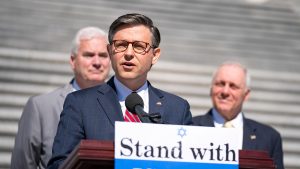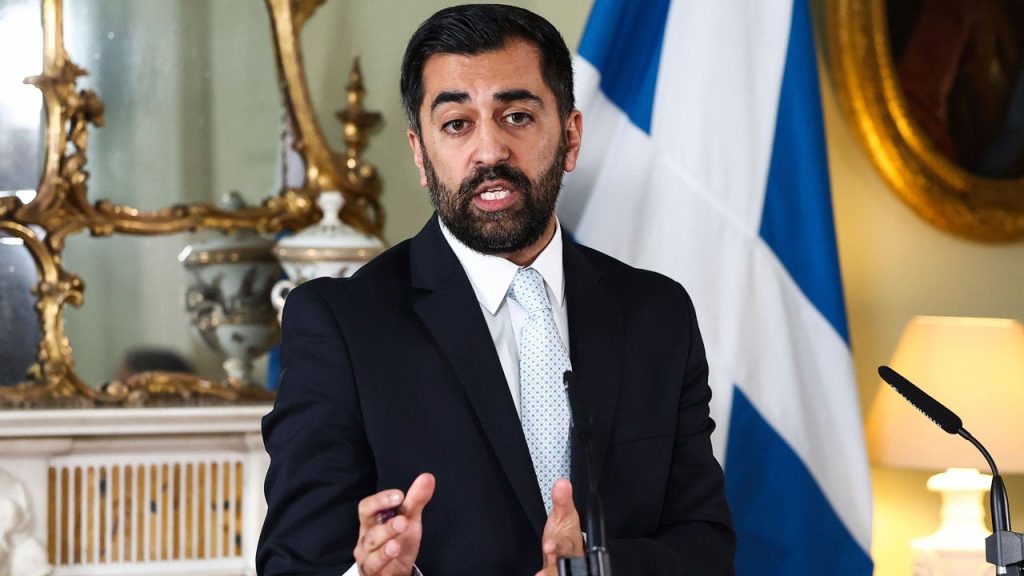Scotland’s first minister, Humza Yousaf, resigned amidst political turmoil and division within the Scottish National Party. Yousaf stepped down rather than face a no-confidence vote after failing to strike a deal with a breakaway nationalist party that could have given him a majority in Scotland’s devolved regional parliament. This move came after Yousaf ditched a target for fighting climate change, leading to the collapse of a coalition with the Green Party. The SNP has been grappling with a campaign finance scandal and divisions over transgender rights, further weakening Yousaf’s position as party leader.
The failed negotiations and subsequent resignation of Yousaf have added to the already charged political climate in the United Kingdom. The ruling Conservative Party and the opposition Labour Party proposed no-confidence motions against Yousaf and his government as part of efforts to weaken the SNP ahead of a U.K.-wide parliamentary election expected later in the year. The SNP has been the dominant party in Scottish politics for almost two decades, holding a majority of the country’s seats in the U.K. parliament. The upcoming local elections in England and Wales are also seen as a test of support for the government.
Yousaf attempted to save his government by reaching out to other party leaders for separate meetings to discuss concerns in a constructive manner. However, with all other parties opposing him, the fate of his government rested on the single seat held by the Alba Party in the Scottish parliament. The SNP holds 63 of the 128 voting lawmakers, leaving Yousaf one vote short of the majority he needed to stay in power. With no prospects of success, Yousaf decided to step down as party leader, acknowledging that repairing relationships across the political divide would require a change in leadership.
Yousaf’s resignation comes at a time of significant challenges for the SNP, with internal divisions and controversies eroding support for the party. The handling of campaign finance issues and disagreements surrounding transgender rights have further strained the party’s credibility and cohesion. Yousaf’s decision to step down reflects the mounting pressure and political difficulties facing the SNP, especially in the lead-up to important elections and amid heightened scrutiny of its leadership.
The political landscape in Scotland remains fluid and uncertain, with the resignation of Yousaf creating a power vacuum within the SNP and the broader political arena. The outcome of the upcoming local elections and the implications for the ruling parties will be closely watched as indicators of public sentiment and support. The fallout from Yousaf’s departure and the implications for the SNP’s future direction and leadership will be key factors in shaping the political landscape in Scotland and the broader United Kingdom in the coming months.
As Scotland grapples with internal divisions and political upheaval, the resignation of Humza Yousaf marks a significant turning point for the SNP and the wider political landscape. The aftermath of Yousaf’s departure and the implications for the party’s leadership and policy direction will be critical in determining the future trajectory of Scottish politics. With major elections looming and public discontent rising, the challenges facing the SNP and its ability to navigate through the current political turbulence will be closely watched both domestically and internationally.















